The Yang Slinger: Vol. XCII
Before we made our livings as writers, we were inspired by the work of others. So I asked a bunch of writers—what inspired you? At the start?
In my office, on a shitty ol’ shelf, rest two dozen or so books that look exactly like these …
They are from a long-ago series called THE COMPLETE HANDBOOK OF. A man named Zander Hollander was the publisher, and the editions came out before every Major League Baseball, National Football League, National Basketball League and National Hockey League season.
And I (with the exception of hockey) gobbled them up.
I can’t say “literally” gobbled them up, because that would involve me eating books. But I would call the local Waldenbooks, then call again and again and again and again until, ultimately, some clerk confirmed the new edition was in stock. Then, without fail, I’d bribe my dad (with a back scratch) to drive me to the Jefferson Valley Mall and pick up the latest copy.
Upon returning home, I would vanish into my bedroom and read every page.
Then every page again.
And again.
And again.
Truly, the books became my bible. Yes, they were stat-filled and informative. You could look up home runs, batting averages, rebounds per game, touchdowns, birthdays. All the numbers. But what really sunk in—like, really, really, really sunk in—was the snark.
Like this …
And this …
And this …
The words and tones and beats stuck in my head. I would recite that shit aloud—”Stiffer than Julius Caesar”—and feel the flow. It morphed how I thought of writing. It taught me to grasp the bounce of noun choice and verb rhythm and adjective enticement. I didn’t just want to read the latest Complete Handbook. I wanted to write as Hollander’s hired guns wrote.
For me, they changed everything.
•••
I bring this up because, for today’s Yang Yang Substack, I ask a load of writers the simple-yet-not simple question: What’s the book you’ve read that changed/impacted you as a writer, and why?
For me, it’s the Hollander canon.
For others, it’s … well, all over the map.
Let’s take a gander …
Former Los Angeles Times writer
Director of Sports Journalism at Medill
“The Right Stuff” made writing seem so exciting because Tom Wolfe was so descriptive and wrote with such freedom. I loved how he gave capital-letter names to concepts. For anyone who was at Northwestern when i wrote my Dark Side columns, they probably came from reading Tom Wolfe.
•••
Freelance writer
Director and creator, “Coastal Crisis: California’s Vanishing Beaches”
This is an easy one. Harold Evans' "Do I Make Myself Clear?" influenced me greatly as a writer. In this book, Evans teaches his readers how to write clearly and effectively using an active voice. He emphasizes the importance of concise writing and provides numerous examples of poor writing with improvement tips. This book should be required reading for all undergraduate students in America.
•••
Golf Digest senior writer
I picked up “Education of a Wandering Man,” which is Louis L'Amour's autobiography, randomly. I’m not even a western fan, really. But it was fascinating. He lists every book he read growing up, and recounts how he basically self-directed his education as he tramped around the world in these different desolate jobs. I was a freshman in college. I decided I'd try to pick off the books on his list that I hadn't read to get a wider lens. We know now that stories come from everywhere. That was my first lesson in that.
•••
The Ringer
Toni Morrison’s “Beloved.” I read it in college, and it changed my life. Aside from the actual content of the book and how important that is, her prose changed the way I saw writing. She was making one word paragraphs, one word sentences. There was rhyme in between words. There seemed to be a jazzy, auditory, musical, improvisational quality to her prose, and it bucked all the convention I had been taught. She taught me to write as if someone was saying it out loud, and to not be afraid to stray from convention.
•••
Washington Post
I would say “Friday Night Lights” by Buzz Bissinger. It opened my eyes to writing with detail. And when given access with someone, that I should take the reader with me, let them see and hear what I experience… which is sharing details. I was just a preps writer when I read it but it made me look at sports as a story and the athletes as people.
•••
Sports Illustrated writer
60 Minutes correspondent
I’m in middle school. I live and die Indiana basketball. I am friends with Bob Knight’s son, Pat. I never miss a game. I see this schlubby guy in town periodically. See him at Marsh Grocery, see him at games. It’s a Washington Post writer allegedly spending the season *in my town* to write a book about Knight. That sounds all kinds of of cool. I like basketball. I like talking about and thinking about Bob Knight. I’ve heard a lot of stories. Embedding yourself in a new place and subculture seems appealing. No combing your hair or wearing a belt or keeping regular hours, like this guy, seems awesome. Even writing it all up doesn’t like seem like torture. It could even be fun. I don’t think about it much. Two years later I’m a freshman—by now on the high school school newspaper—and “Season on the Brink” comes out.
•••
Author, The Tupac Encyclopedia
“The Power Broker by Robert Caro showed me how the best biographies are about so much more than the subject alone and that non-fiction books can be as riveting as any work of fiction.
•••
Orange County Register USC beat writer
For one I’d say “Lord of the Flies.” Not as much with the writing style, but it made me think a lot about human nature and how to write characters and just in general, as someone who loves narratives, the concept of how life circumstances shape people versus how they’re born and particularly loving stories where people get thrown into an unfamiliar situation and how that changes them.
•••
ESPN senior writer
When I was in college and learning the basics of the craft, a lot of books influenced my writing, from Jim Murray’s collection of essays to Rick Telander’s “Heaven is a Playground” to David Halberstam’s “Playing for Keeps.” But few impacted my actual career more than “The Franchise: A History of Sports Illustrated Magazine,” by Michael MacCambridge. Let’s go back to 1997: I’m an Alaska kid at the Missouri School of Journalism. I’m a sophomore. Mizzou is supposed to be this pipeline into great jobs. Where is the pipeline? Where are the people who can explain to me, if you want to become a great sportswriter and get hired at SI, do this? They’re not here.
I saw something about “The Franchise” being released and bought it. It opened a world for me. It was a lot of things, foremost a history of SI. But it was also a guide, the smartest breakdown to date of what it took to be great at this, and what’s more, how the greats got hired at SI. It was a job road map. It explained what so many of these writers I loved to read — from Jenkins to Deford to Telander to Reilly to Smith to Silver to King to Price and others — did at each stage of their careers, before the Yankees had them bat cleanup. So many of them started as what was called a Reporter at SI, often out of college, then eventually moving up to Senior Writer. That gave me hope. I wanted to do something similar, and months before I graduated, I met ESPN The Magazine editor in chief John Papanek, who had run SI and figured prominently in “The Franchise.” ESPN’s masthead structure was a lot like SI’s — only it let younger writers write more often. I told him that I wanted to be one of them. I ended up getting hired out of school. I’ve now been at ESPN 24 years. I don’t think that would have happened without “The Franchise.”
•••
MLB Analyst
I like Erik Larson a lot. Story craft style. Fictionalized non-fiction. “Devil in the White City.” We had the same agent for a while and when he wrote the one about the rise of Hitler (“In the Garden of Beasts)” he said he had to take a mental leave because of the amount of evil he had to intake while researching. It was a moment that I understood that the Holocaust was actually worse than I even imagined or understood. And I imagined it as demonic.
•••
Author, “One Goal.”
I’ve got two: “A Visit from the Goon Squad,” a work of spectacular fiction that blew my mind and is something I pick up if I ever get frustrated or lazy about writing. My heart beat faster reading it, not because of content, necessarily, but because I was just in awe of it page by page, storyline by storyline. Her approach to narrative — that is simultaneously continuous and disconnected — really changed the way I think about storytelling. Chronology is for beginners, essentially. The other is Susan Orlean, “The Library Book,” which again altered the way I think about structure and story, nonfiction and creative nonfiction. Neither book is anything like what I write, and yet both have had a profound impact on how I do what I do. It’s one of the reasons that I advocate reading widely across genres, across subjects — you really never know where your “aha!” moments are going to come from.
•••
The Howard Cosell of MMA
Two come to mind. “Have a Nice Day” by Mick Foley. I was blown away that he wrote that on his own - on a notepad! - and it was the first time I read a book about the behind the scenes world of pro wrestling, which I was fascinated by. I remembered savoring every page. I loved how self-deprecating he was and found a bit of myself in his story. The other was “Just Ballin’” by Frank Isola and Mike Wise on the 1999 Knicks. I loved how it read like one long recap from two beat writers. The inside scoops, the locker room talk, the journey … it was a great journalistic book. In fact, I decided to re-read this spring, 24 years later, because this year’s team reminded me a lot of that one.
•••
Lead singer, “Blind Melon”
As boring as this probably sounds, the Bible has probably been the most impactful. I pull ideas for songs from the book of Psalms and Proverbs all the time. Pushing theology aside, if you just go and read Proverbs, that book is filled with so much wisdom that applies to today. It’s very much relevant to today. Technology, environment, etc changes over time but what doesn’t change is the human heart. “There’s nothing new under the sun” which is a direct quote out of the book of Ecclesiastes, written by king Solomon. That book(The Bible), regardless of what you may or not believe, is still very much relevant to today. There is a lot of wisdom in the Bible. So, I would say out of all the books I’ve read, the Bible has most certainly made the biggest impact on me as a writer and overall human being.
•••
Author, “Out of the Darkness.”
Two books for me, kinda connected in a weird way. “Brideshead Revisited,” the classic Evelyn Waugh novel, had a big impact on me as a high school kid, both in the way I looked at Catholicism (and my parents’ devotion to it, via spending money we did not have on Catholic educations) and the way I looked at words and the art of storytelling. It was mandatory reading in Mrs. Feeley’s class at St. Cecilia High in Englewood, N.J., and it was the first book of any kind that compelled me to consider a life as a writer. I recall featuring “Brideshead” prominently in a speech I gave in the St. Cecilia church.
Vince Lombardi used to attend Mass in that church daily, while coaching the football team and living eight houses down from what would be my own childhood home. In fact, St. Cecilia's was Lombardi’s only head coaching job before he took over the Green Bay Packers. He turned tiny, outmanned Saints into the best high school football team in America in the 1940s, because of course he did.
I’m not sure about my teammates, but when I played there in the early 1980s, with the cash-strapped school a few years from shutting down, I thought about Lombardi’s legacy all the time. I’m probably prouder of playing in the last state playoff victory in St. Cecilia’s history (and…ahem…coming down with two interceptions) than anything I’ve done as a writer. So when David Maraniss wrote his masterpiece on Lombardi, “When Pride Still Mattered,” I read it once, twice, three times. That was the bio that inspired me to consider a career as an author. While chasing that grail in vain, I was thrilled when Maraniss agreed to endorse my Bill Belichick bio with a kind word. Who said book blurbs are a waste of time anyway?
•••
ESPN Las Vegas Raiders beat writer
“Bless Me, Ultima,” a coming-of-age novel by the New Mexico-based Godfather of Chicano Literature Rudolfo Anaya, is the one that hit home for me. Mostly because it was like being able to read on paper so many old tales simply told by mouth on my mom’s side of the family when I was growing up in Southern California. A curandera, or a healing woman/midwife who was revered? Yeah, my grandma would head home to the Land of Enchantment to give birth to her children with the help of an Ultima-type woman. A mishmash of Catholic/Native American/New Age upbringing? The book, as well as my uncles and aunts, told similar tales. My grandma even told me when she was growing up, her grandpa told her how he used to ride with Billy the Kid. And guess who wrote a play on the Kid that was nearly word-for-word the story my grandma told me? Anaya’s “Bless Me, Ultima” resonated with me and sparked an inner desire to explore more of my roots, my heritage, which, in turn, made me want to do the same in stories I wrote. Yeah, even in sports. It has helped me find a connection not only on a personal level, but on a professional one. And when it came to covering the Raiders and their rich history of inclusiveness, especially when it came to Latino stars like Hall of Famer Tom Flores and two-time Super Bowl-winning quarterback Jim Plunkett, it’s helped better portray their upbringings. Plus, I got to re-read “Bless Me, Ultima” with my daughter for a high school assignment last year. Win-win.
•••
New York Post columnist
I can answer that two ways. Here’s number one
This probably sounds outlandish but it’s true. When I was 12 I was obsessed with the Beatles. My father found a book in an old city flea market called Job Lot called “Growing up with the Beatles.” It was by a guy named Ron Schaumburg, a kid from a Kansas City suburb who wrote a book (filled with pictures) that be nevertheless had a terrific narrative about what it was like growing up in junior high and high school being a crazy Beatles fan. It was so good that I probably read it 100 times. The pages were literally unattached to each other after a while.
And it was like a lightning strike: this was the first time I realized that you could write about stuff you liked. It wasn’t just an assignment by an English teacher, to do an essay or read Mark Twain. That stuff was work. THIS … I mean this guy had actually gone and written a whole book about the Beatles. It wasn’t a definitive biography, it wasn’t a serious looking book. But Ron’s writing was so engaging and so accessible to me as a 12 year old … I mean I swear I can still literally recite entire passages of that book verbatim.
Fun postscript: you know I spent some time in Kansas City. One rainy day at the Star I went to the morgue and looked up his file. It was small but incliddd a bunch of stuff the Star had written when the book came out in 1976. Also mentioned he’d moved to New Jersey. So one rainy day years later when I’d moved to Jersey I looked him up and found him as the communications director for some company in Teaneck, I believe. I wrote him an email (and it turns out he read it on the day George Harrison died where I basically thanked him for showing me the way to my life. He wrote me back the most amazing note thanking ME for telling him that.
I still have the book in my attic.
The second and probably far more common one: I had an English teacher in high school who thought I should challenge myself more. He dared me to read “The Catcher in the Rye “(which had been taken off my school’s curriculum a few years ago) and it was the first book I ever read cover to cover without a pause. I literally could not put it down and after awhile I realized it was as much that I was enchanted with the way Salinger wrote as with the story itself. That was a game changer for me.
•••
Rapper
I love “The Anatomy of Story” by John Truby.
I love that book. It gave me a much more personal and unique way to approach stories. It made my stories a living, breathing thing.
•••
Chair, University of Florida Journalism Department
Early on for me it was “Bonfire of the Vanities,” which turned me on to Tom Wolfe. When you’re in college and doing intro journalism, you think about rules, structure, precision (all of which are great and vital), but getting exposed to the Wolfe voice was big for me. Playful, creative, experimental, unconventional. I don’t know if it was a direct reason, but it was probably a major influence as to why I veered into magazines.
•••
Las Vegas Review-Journal Raiders beat writer
“Ernest Hemingway on Writing.” This book was a game changer. A series of letters, excerpts from interviews etc … from Hemingway on all things related to writing. So incredibly helpful and something I think back to to this day.
•••
allhiphop.com editor
“The Stand” by Stephen King is probably my favorite book of fiction. It was multi-layered, lots of characters and the plot was dense has hell. I believe it’s too much for TV and movie and that’s why adoption attempts have failed.
•••
USA Today writer
“All the President’s Men.” Read it. Put it down. Picked it back up and read it again. Only one of two books I’ve ever done that with. Changed my life.
•••
New York Times best-selling author
Here are three books that have had a major influence on me. They couldn't be more different. “The Sun Also Rises” is not just vintage Hemingway, but a masterpiece of clean, spare prose. When I read it for the first time in college, I was insecure about my writing voice, and my intelligence, too, so I made it a point to overcomplicate my prose and overpopulate it with many polysyllabic words, very few of which were needed. I figured if I threw in enough words like ubiquitous and verisimilitude in there, people would be impressed by something or other.
Do I cringe when I read that stuff now? Yes, I do. Even now, when I need to get myself in spare mode, or do a reset, I might go find “The Sun Also Rises” or Hemingway's brilliant short story, "A Clean, Well-Lighted Place,” and get a tutorial. “The Sun Also Rises” provides another treasured benefit. It has my favorite last line of any novel I've ever read:
"Isn't It pretty to think so?"
The other two books are “Open,” J.R. Moehringer's Andre Agassi memoir. It's just a stunning piece of as-told-to storytelling. Moehringer, who also wrote Spare, of course, is just the best in the business as a collaborator.
Finally, Roy Peter Clark, or America's writing teacher as he is popularly known, has a book called “Writing Tools.” Roy may not have spent a lot of time on the title, but the book is just jam-packed with "essential strategies for every writer." It's tight and fun and full of wisdom.
•••
ESPN investigative reporter/senior writer
David Halberstam’s “The Best and the Brightest.” And I had a chance to chat with him about it 20 years later. I told him my father gave me the book when I was in journalism school and that it changed the way I looked at the craft. He reacted as though no one had ever said that to him and he grilled me on why my father gave it to me, what about the book appealed to me, how it affected me, etc. A humble, friendly grilling, to be clear.
Ask Jeff Pearlman a fucking question(s)
From Blanket: You' have mentioned you have three months until your book is due. What does that feel like?: Step away from your laptop and find a lighter. Spark it up, hold it to your hair. Then your ears. Then your nose. Then inside your nose. Make certain every nasal hair is lit. Then find some vinegar and pour it all over your skull.
Then do it five more times.
.
The Quaz Five with … Emmett Pearlman
My son Emmett graduates from high school today. He’ll be a freshman at Northeastern in the fall. Five years ago, at age 12, he did this Q&A. Now he’s back. I love this kid.
1. What does it feel like to be graduating?: Um, I dunno. It doesn’t really feel like too much right now. It’s probably nice that it’s happening. But … I dunno.
2. You’re about to hear a bunch of speeches about the future. As an old guy, the future doesn’t seem so amazing, what with climate change and war and Trump and on and on. What do you see?: I have a lot of work to do.
3. You’ll be leaving SoCal to freeze your ass off in Boston. How do you feel about that?: I’m not worried about the freezing, but it’s weird I’m going there. I’ll be living in a different place. That’s unusual for me. And without my dear papa and mother.
4. What’s the best thing about high school? The worst?: The best thing is you meet people you wouldn’t normally meet. I’ve heard it’s hard to meet new people as an adult. You’re forced into that. The worst is the same—you’re forced into things you don’t want. There’s a lot of social pressure.
5. What do you want?: What do I want? Respect. That’s it.
[Bonus—rank in order, favorite to least]: Eminem’s new music, the Los Angeles Angels of Anaheim, turkey hot dogs, NBA 2K for the XBox, John Prine, Astroturf, 15-hour flights, eggplant: NBA 2K, 15-hour flights, John Prine, Angels, turkey hot dogs, eggplant, Eminem’s new music, Astroturf.
A random old article worth revisiting …
On Jan. 3, 1907, the Richmond Times-Dispatch told the back-to-back sagas of a mad dog attacking three children in the Feeperman household, and the death of a 50-year-old woman who was reading … alone.
The Madness of Tyler Kepner’s Grid …
So unless you’ve been living beneath a pebble beneath a rock beneath a big hunk of cheese, you’re aware of Immaculate Grid, the daily game that’s drawn thousands of nerdy sports fans (guilty!) to its ranks. And while the NBA grid, NFL grid, NHL grid and WNBA grid are all fun, this game is at its best when it comes to baseball—where the names are endless and the transactions ceaseless.
Over the past few weeks I’ve often discussed the grid with Tyler Kepner, the Athletic baseball writer. And now, for kicks, every week I feature one of Tyler’s bonkers grid results. He’s the ultimate baseball geek (I say this with great affection), and his outputs blow my mind.
So …
Tyler thoughts:
• Matt Thornton was a first-rounder by the Mariners right before I went onto their beat.
• Norberto Martin was the opening day second baseman on the 1998 Angel team I covered
• Sap Randall was a memorable name I spotted on Baseball Reference.
• Steve Trachsel pitched in the first All-Star Game I covered (1996).
• Mick Kelleher was a Yankee coach when I covered them.
• Carmelo Martinez started with the Cubs and played in the game when the Phillies clinched the NL East at Wrigley in 1983.
• I noticed a guy with a Ray Brown T-shirt on my trip to Cooperstown last month and thought that was so cool.
• Got lucky on Judy Johnson, thought he was a shortstop but actually played much more third base.
• Realized there was a Lyman Bostock, Sr. when I noticed he had a higher average than Ted Williams (in far fewer at-bats) in 1941.
This week’s college writer you should follow on Linkedin …
Layla Warshaw, Lehigh University
Laya, editorial pages editor at The Brown & White, penned a fascinating piece looking back at what life was like for Lehigh students during Covid. In A RETROSPECTION ON ENTERING COLLEGE DURING THE COVID PANDEMIC, she writes
One can follow Layla on Linkedin here.
Journalism musings for the week …
Musing 1: If you want to feel really bad about the state of modern journalism, check out this piece from Katie Robertson and Benjamin Mullin in the New York Times. Headlined, WASHINGTON POST C.E.O. PROMISED INTERVIEW FOR IGNORING SCANDAL, NPR REPORTER SAYS, it’s a really grim, pathetic look at Will Lewis, the Post’s chief executive, who allegedly violated 800,000 journalism codes by “repeatedly offer(ing) an exclusive interview to an NPR reporter if the reporter agreed not to write about allegations against Mr. Lewis in a phone-hacking scandal in Britain, according to an account by that reporter published on Thursday.”
Musing 2: Phenomenal reporting from (again) the Times, where Declan Walsh and Abdi Latif Dahir risked all sorts of life and limb to produce an epic piece on war-demolished Sudan, which—to most of us Americans—doesn’t seem to exist. Trust me, read WAR IN SUDAN: HOW TWO RIVAL GENERALS WRECKED THEIR COUNTRY and feel what’s happening.
Musing 3: Baxter Holmes of ESPN with the sad, tragic story of former NBA guard Delonte West, whose battles with bi-polar continue is really awful ways.
Musing 4: Random, but one of my favorite follows on Twitter has become Jumbo Elliott, the former New York Giants offensive lineman who is simultaneously moderate (politically) but fed up with Trump’s MAGA bullshit. And says so.
Musing 5: Along those lines, former USC quarterback/Heisman winner Matt Leinart is a Fauci-bashing conspiracy theorist. Which doesn’t speak well for retired lefthanded Arizona Cardinals.
Musing 6: Wife and I recently watched the Netflix TikTok Cult Documentary: “Dancing with the Devil.” It was weird and creepy and makes me glad I’m not: A. 23. B. A good dancer. It also makes me wanna break Miranda Derrick out of that crazy-ass house in LA. That said, the story remains unresolved—which left the three-part show engrossing, but also a little unsatisfying.
Musing 7: On Thursday night Doris Burke became the first woman to serve as a TV game analyst during a major men's professional championship event. Which is … ridiculous. Burke is awesome. Has been awesome forever. Why did it take this long?
Musing 8: Every aspiring political debate moderator needs to study the work of Kyle Clark, the moderator for last Friday’s debate for Colorado’s 4th Congressional District. The man, who works for local Channel 9, didn’t pull any punches, asked hard questions, made everyone on stage (appropriately) squirm. It was, truly, amazing.
Musing 9: He’s such a fucking conman.
Musing 10: Noah Rothman in the National Review with an interesting piece on how the Wisconsin GOP is fucking itself—to soothe Trump.
Musing 11: The new Two Writers Slinging Yang stars Keith Law, the outstanding baseball writer for The Athletic.






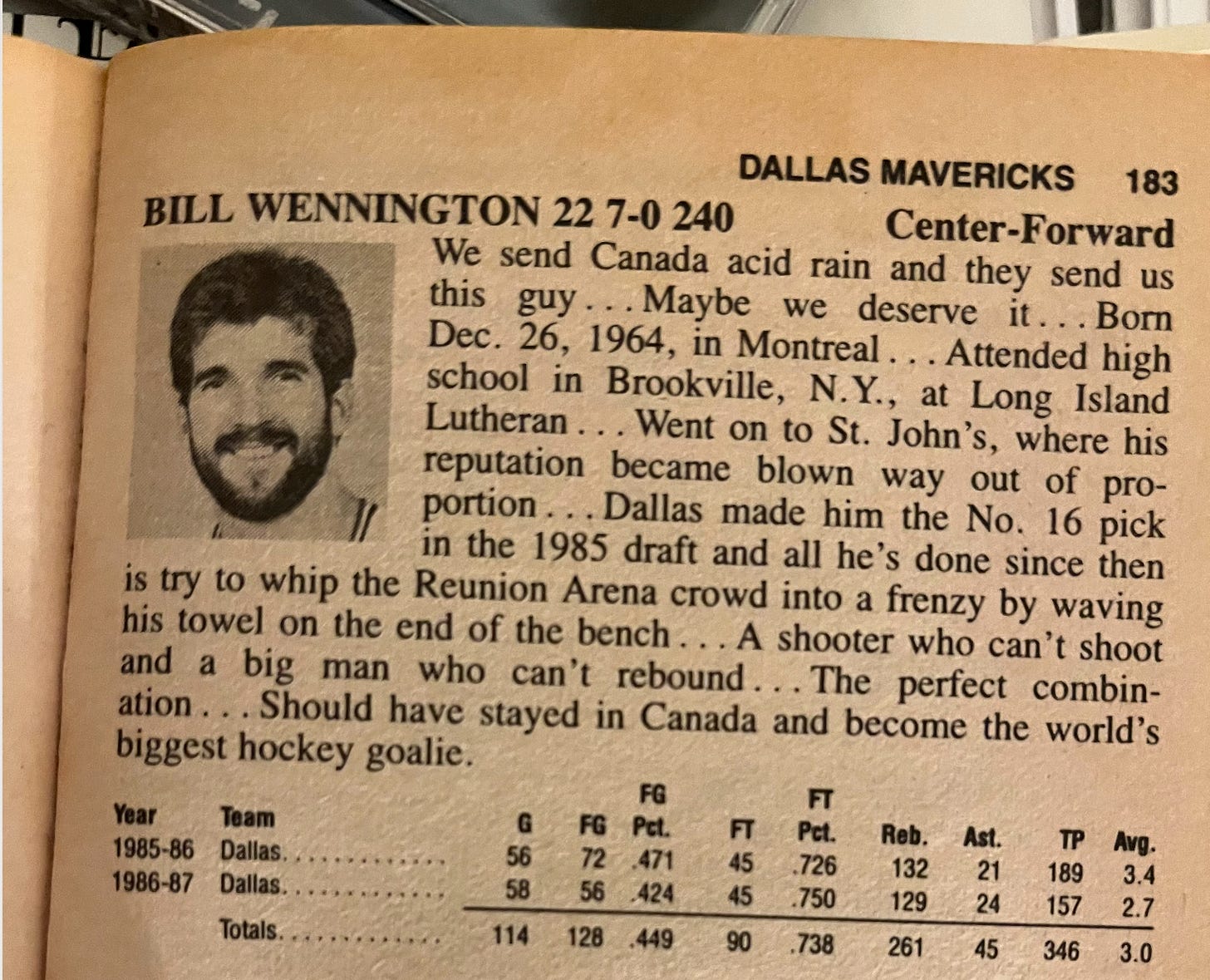














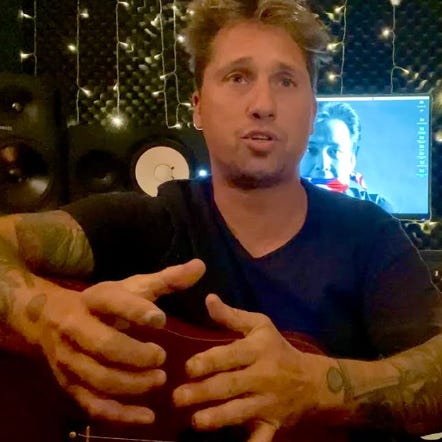




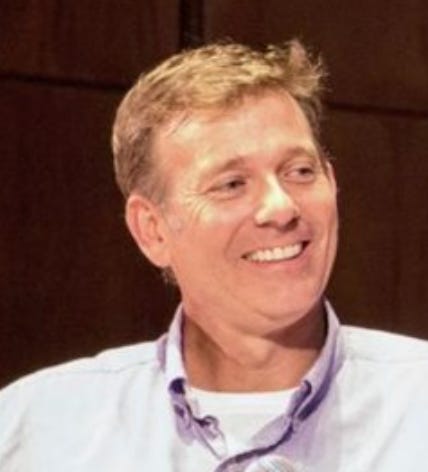





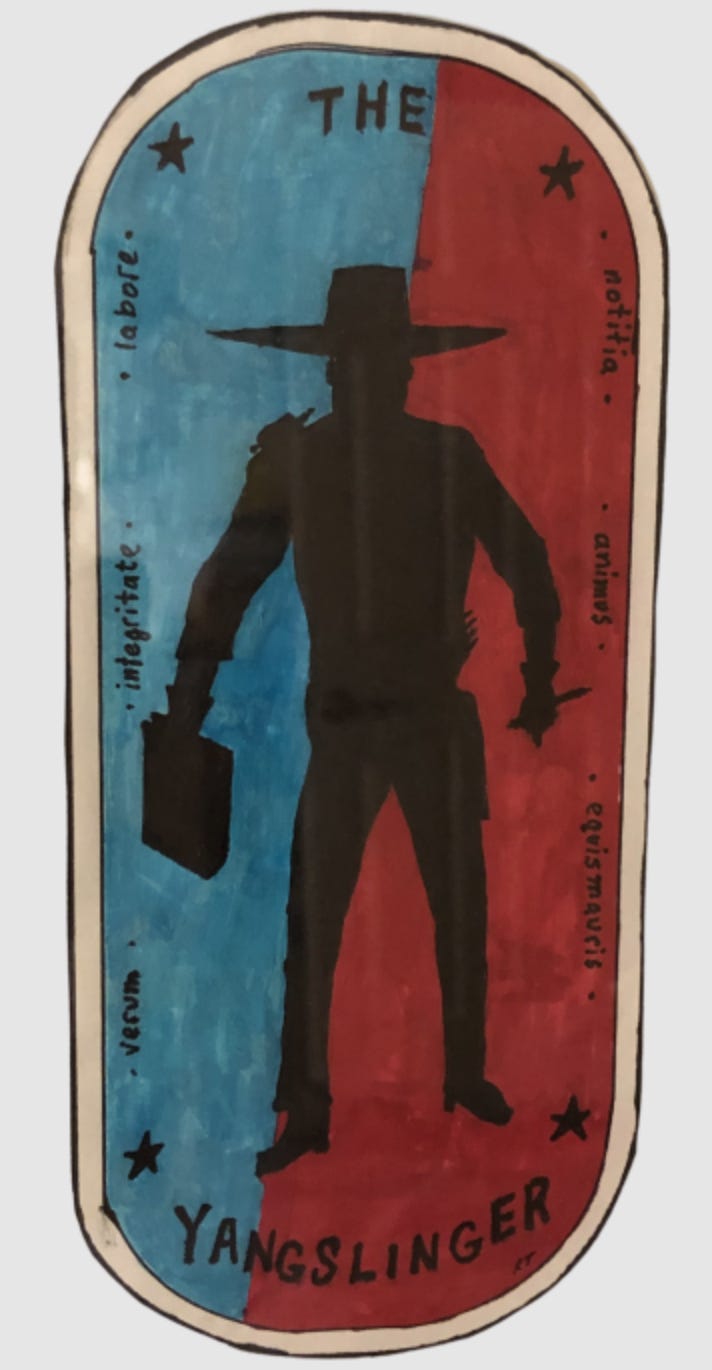

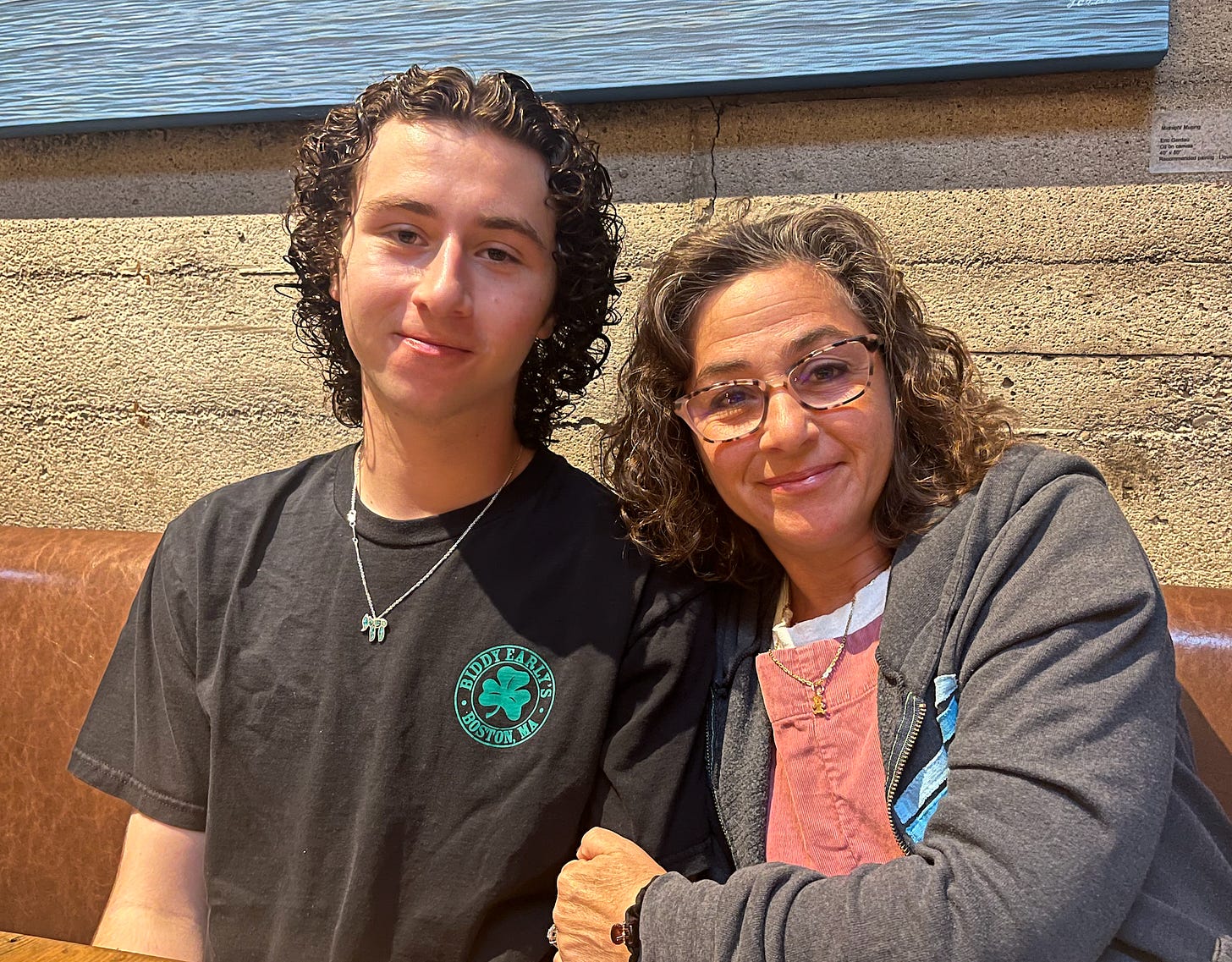







Friday Night Lights was up there for me as well. His Dark Materials is probably the novel series that has impacted my life the most, but Friday Night Lights was the first time I seriously engaged with novelized journalism.
I inhaled that book, then proceeded to spend a year reading only books like it. Fast Food Nation, In Cold Blood and Helter Skelter all stand out. But Friday Night Lights was the first.
Holldander was editor; pretty sure Random Hs was publisher. SORRY - I HATE being one of "those people" but I sold used/rare sports books for 40 yrs....